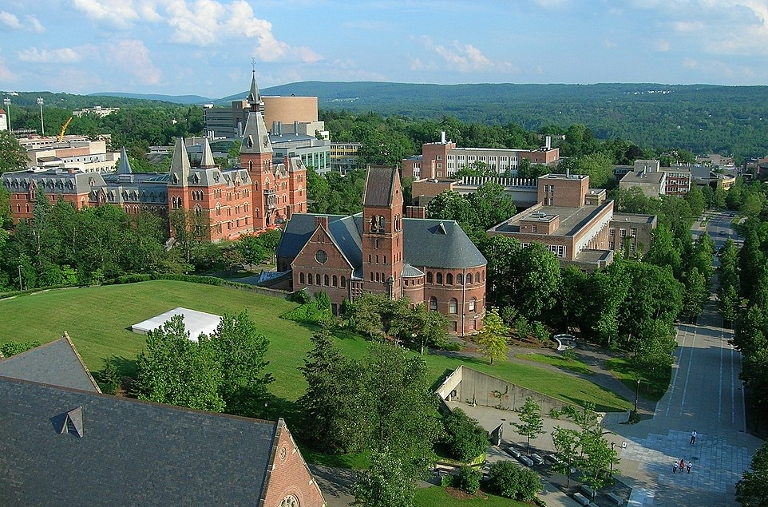Modern, anthropocentric, civilization is at war with the natural world and, unlike past civilizations, we are “winning” the war on a global level. We are changing the pH of the oceans, melting the polar ice caps, and driving millions of species into extinction. We need to completely rethink modern civilization.
Unfortunately, universities are not doing much to facilitate this rethinking of civilization. In fact, on the whole, they reinforce the view that there is no alternative to modern civilization. This is to be expected. The modern university was created to bring the modern world into existence. Its failure to address the destructive nature of modernity is no different than the failure of the medieval university to address the destructive aspects of religion. In this sense, the failure of the modern university to rethink modern civilization is completely rational. But so long as we educate young people into modern ways of thinking, we will continue to perpetuate the very civilization that is destroying the planet.
The modern university was designed to advance “pure knowledge,” an objective quite distinct from solving real-world problems. Such research demanded the creation of academic disciplines, each devoted to its own line of inquiry and employing its own methods. Though there are advantages to this approach, there are few issues that can be addressed sufficiently within a single academic discipline. Rethinking modern civilization is arguably the most important example of an issue that cannot be answered within any single academic discipline.
In the last thirty years, some researchers have made an effort to work across disciplines. These efforts, however, are limited both in scope and frequency and are the exceptions that prove the rule. The kind of thinking that transcends all academic disciplines is not allowed because it violates the basic axiom on which the modern university was founded—pure knowledge requires disciplinary limits.
Beginning in the late 19th century, the university took on a second mandate as the training ground for workforce development, teaching “the practical arts” alongside the “liberal arts.” Today, this secondary mission of the university is generally perceived to be its primary mission. The existence of the modern university is now largely justified by its ability to educate students for employment in the modern economy.
There is an obvious tension between preparing individuals for jobs in the existing economy and radically rethinking human civilization. Or at least there would be, if the university actually engaged in the latter activity. Though scattered across the many departments, colleges, and schools of large universities are faculty, diligently addressing the dire problems associated with climate change and the age of the Anthropocene, by and large, universities function well within the existing social structure.
So what is to be done? The most radical and effective possibility, and the least likely, is for universities to accept the findings of their own researchers—that modern civilization is unsustainable—and embrace a new identity and a new mission. Having taken the place of religious institutions as the leading cultural institution of Western civilization, the modern university could assume the mantle of moral leadership and make it their mission to address the environmental and human justice issues that threaten human existence. Job-training could be farmed out to other institutions.
Short-sighted business entities will demand that universities stick to their job of training workers and short-sighted academics, like Stanley Fish, author of the book, Save the World on Your Own Time, will insist that the university retain its original mission of producing pure knowledge. Far-sighted business entities, on the other hand, understand that civilizational collapse is not good for business and far-sighted academics understand that “saving the world” is more important than “pure knowledge.” These forces might prevail.
Another possibility is to circumvent the modern university and create a kind of university-in-exile. The modern university did not arise out of the medieval university so much as it arose alongside it and replaced it. For a period of a couple of hundred years, the most creative and important work in the sciences and the humanities occurred outside the walls of the universities. The Post Carbon Institute, the Land Institute, and the Institute for the Postmodern Development of China, are examples of institutions working to help the modern world transition toward a just and sustainable form of civilization. They could expand their current mission, which includes public education and policy development, to include undergraduate and graduate education. They could form their own accrediting body and grant their own degrees independently of the modern university and other, similar, institutes could do likewise.
Yet another possibility, one that compliments the creation of universities-in-exile but does not depend on it, is to establish new small colleges, similar to Sterling College, in Vermont, and the College of the Atlantic, in Maine. Matthew Derr, President of Sterling College, articulates the kind of leadership such colleges can provide. “It is time,” he said, “to take extraordinary measures to address the climate emergency through education and stand on behalf of the generation of students we serve and hope to serve in the decades to come.” More small colleges like this, and more college presidents like this, are needed.
Small colleges were once the backbone of higher education. Today, universities have taken on this responsibility, in part because it is more “efficient.” But if universities are unwilling or unable to address the most serious issues of the day, how is it more “efficient” to provide young people with this kind of education?
We need a form of civilization that co-exists with the nine million other species of life on this planet. We need a form of civilization that is socially just and does not equate human happiness and well-being with the endless consumption of material goods. The modern university, as it is currently configured, stands in the way of creating this form of civilization. Rethinking civilization requires rethinking higher education.





